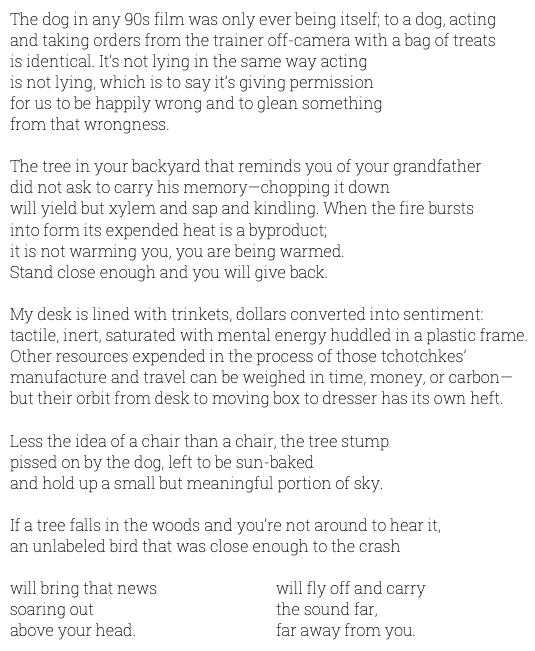Some Organisms Can Survive the Vacuum and Radiation of Outer Space
It is important to spend a small amount of time annually thinking about
tardigrades, microscopic and invulnerable to the cold furnace of space.
There. You’re now all set for a year, until after your next dental cleaning,
after the next visit to your in-laws. During this time Venus will have orbited
the sun 1.62 times, Mercury taken upwards of four circuits,
and a star somewhere in the universe will finally collapse
at the same instant the flame burning inside your mother’s
mother will expunge with a faint gust of air. Well—maybe not
the same instant, because that star was really far away (and your grandmother
was only one state over, which felt like a lot to you
on the few spare weekends you had but is, in the universal
scheme of things, pretty close). What right do we have to define
simultaneity? The speed of sound and light are recorded, but what
about experience—we all know stars are concluding light but
maybe we rekindle them with our seeing, with our eye-cones and neural pathways,
with our pointing them out to our children and stepchildren,
the word STAR and whatever letters we’re built on all
humming with electricity, recognition—what is time but accumulation,
a thread meted out between two beings moving apart
or closer or swinging around an axis in step, what is the distance
between you and your remaining grandparent, between you and the star
adopted in your name? Measured in endless, endless tardigrades.
![]()
The Gravity Between Two Objects is Proportional to Their Masses and Inversely Proportional to the Distance Between Them

![]()
Brandon Amico is the author of Disappearing, Inc. (Gold Wake Press, 2019). He is a 2019 NEA Creative Writing Fellow and the winner of Southern Humanities Review’s Hoepfner Literary Award for Poetry. His poems have appeared in publications including Best American Poetry 2020, The Adroit Journal, Blackbird, The Cincinnati Review, Kenyon Review, and New Ohio Review.
